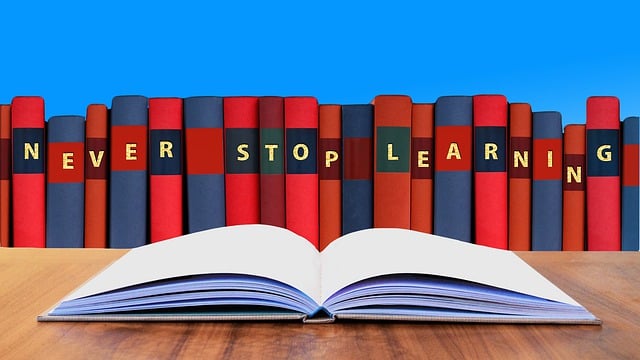Karachi's diverse cultural landscape presents both challenges and opportunities in creating inclusive classrooms. Schools must design flexible learning spaces catering to various students' needs, fostering environments where everyone feels respected and valued. Adaptive teaching methods, peer collaboration, open dialogue, and cultural celebrations are key to ensuring every student thrives, mirroring the city's rich tapestry. By implementing these strategies, Karachi's classrooms can become vibrant microcosms of acceptance and understanding, preparing students for a multicultural society.
In Karachi, a bustling metropolis known for its vibrant tapestry of cultures, creating inclusive classroom environments is more than just a pedagogical choice—it’s a necessity. This article explores strategic approaches to fostering diversity in local schools. From space design that welcomes all learners to teaching methods tailored to diverse needs, we delve into actionable steps. Additionally, we discuss the importance of open dialogue, addressing barriers for students with special needs, and celebrating cultural differences through community events.
- Understanding Diversity in Karachi's Classrooms
- Creating a Welcoming Atmosphere: Inclusive Space Design
- Teaching Methods for All Learners
- Encouraging Dialogue: Fostering an Open Learning Community
- Addressing Barriers: Supporting Students with Special Needs
- Celebrating Differences: Cultural Sensitivity and Events
Understanding Diversity in Karachi's Classrooms

Karachi, a vibrant and diverse metropolis, presents unique challenges and opportunities in fostering inclusive classroom environments. The city’s educational landscape is a tapestry woven with threads from various cultural, ethnic, and socio-economic backgrounds, reflecting its rich heritage. In many schools across Karachi, students from different communities come together, creating an exciting yet complex dynamic. This diversity can be both a strength and a consideration for educators, as it offers a chance to celebrate unique perspectives while ensuring equal opportunities for all.
Understanding and embracing this variety require sensitive navigation. Teachers in Karachi’s classrooms must be adept at creating inclusive spaces where every student feels valued and respected. This involves recognizing and addressing individual needs, promoting cultural sensitivity, and fostering an atmosphere of mutual respect. By doing so, educators can ensure that the classroom becomes a microcosm of Karachi’s vibrant society, where diversity is celebrated, and every student has the chance to thrive.
Creating a Welcoming Atmosphere: Inclusive Space Design

In the diverse and vibrant city of Karachi, creating inclusive classroom environments is not just a pedagogical imperative but a reflection of the city’s rich cultural tapestry. A welcoming atmosphere starts with thoughtful space design that caters to various learning styles and needs. Schools in Karachi can achieve this by incorporating flexible seating arrangements, ensuring adequate natural light and well-designed common areas. Such environments encourage active participation and make every student feel seen and valued.
For instance, adaptable furniture allows for cooperative learning or individual focus, catering to introverts and extroverts alike. Well-planned classrooms in Karachi can include designated quiet spaces for students who need a break from the hustle and bustle, as well as interactive areas for hands-on activities. This physical inclusivity sets the stage for emotional and intellectual accessibility, fostering a sense of belonging among all students, regardless of their backgrounds or learning abilities.
Teaching Methods for All Learners
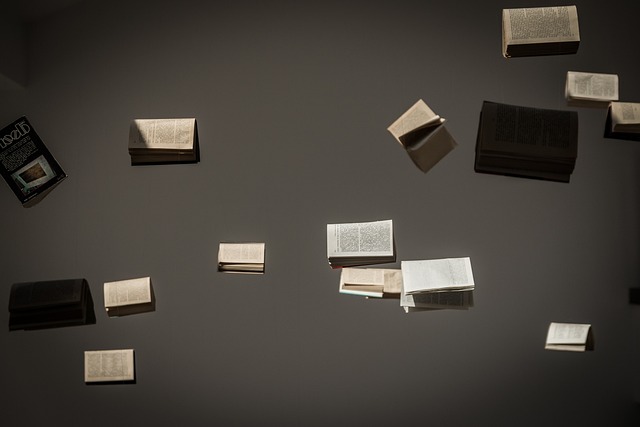
In an inclusive classroom environment in Karachi, diverse teaching methods are essential to cater to the varied learning needs and styles of students. Teachers can employ adaptive strategies such as incorporating technology for visual learners or offering hands-on activities for kinesthetic learners. This flexibility ensures that each student engages with the material effectively, fostering a more comprehensive understanding.
Additionally, integrating multi-sensory experiences, like using music or art to reinforce lessons, can benefit all types of learners. Teachers should also encourage peer collaboration and group work, allowing students to learn from one another’s strengths and support each other in areas of challenge. Such inclusive practices not only enhance academic performance but also promote a sense of belonging and community among students in the vibrant city of Karachi.
Encouraging Dialogue: Fostering an Open Learning Community
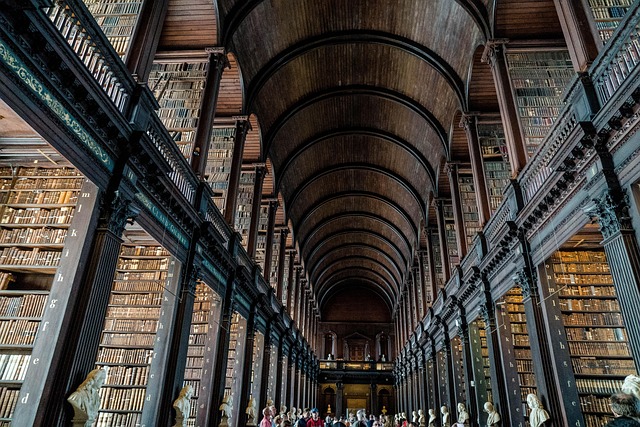
In an inclusive classroom environment, encouraging dialogue is a powerful strategy to foster an open learning community in diverse cities like Karachi. Teachers can create a safe and welcoming space where every student feels comfortable sharing their ideas, questions, and concerns. This involves active listening, promoting respect for different perspectives, and ensuring equal participation. By facilitating discussions that encompass various viewpoints, educators can enhance critical thinking and problem-solving skills among students from varied backgrounds.
A robust learning community in the classroom mirrors the vibrant tapestry of Karachi’s diverse neighborhoods. Students learn to appreciate their peers’ unique experiences and knowledge, breaking down barriers and fostering empathy. This open dialogue not only enriches academic learning but also prepares students for effective communication and collaboration in a multicultural society, making inclusive education an essential pillar for building a more harmonious community in Karachi and beyond.
Addressing Barriers: Supporting Students with Special Needs
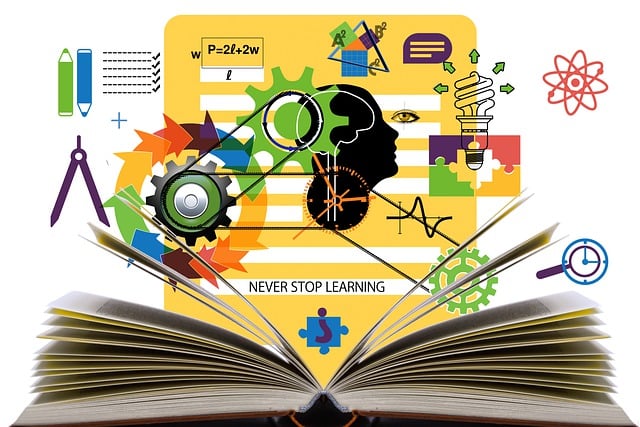
Creating an inclusive classroom environment in Karachi requires a conscious effort to address barriers and support students with special needs, ensuring everyone feels valued and can participate fully. One key strategy is to adapt teaching methods and materials to accommodate diverse learning styles. This might involve incorporating visual aids, providing extra time for assignments, or using multi-sensory approaches to cater to students with learning disabilities. Teachers in Karachi can also foster an environment of acceptance by encouraging open conversations about differences and promoting peer support.
Additionally, collaborating with special education experts and utilizing available resources within the community can significantly enhance inclusivity. Schools in Karachi can organize workshops, training sessions, and awareness campaigns to educate both educators and parents about various disabilities and effective strategies for supporting students. By breaking down barriers and fostering understanding, Karachi’s classrooms can become thriving spaces where every student has the opportunity to thrive and reach their full potential.
Celebrating Differences: Cultural Sensitivity and Events
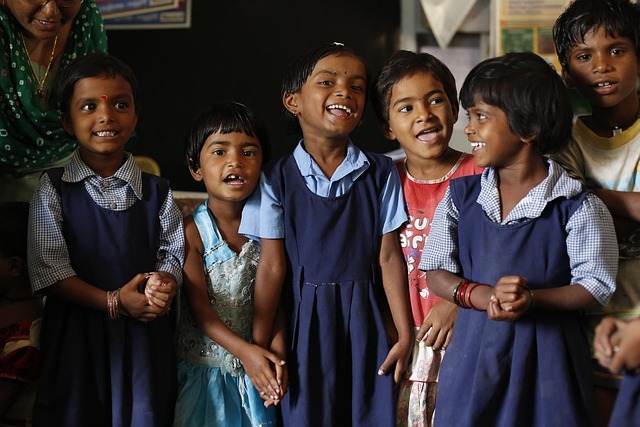
In inclusive classrooms, celebrating differences is more than just a buzzword—it’s a foundational strategy for fostering an environment where every student feels seen and valued. In vibrant cities like Karachi, where diverse communities intertwine, educators can leverage cultural sensitivity events to bridge these gaps. Organize celebrations that highlight various cultures represented in the classroom, from food festivals showcasing traditional dishes to performances reflecting different ethnic backgrounds. These activities not only educate but also create a sense of belonging, encouraging students to appreciate their unique identities and those of their peers.
By incorporating such initiatives, teachers can navigate the educational landscape more effectively, ensuring that every learner feels empowered and engaged. In Karachi’s diverse academic setting, these inclusive practices can help bridge cultural barriers, enrich the learning experience, and prepare students for a globalized world where understanding and respecting differences is paramount.
In Karachi’s diverse classrooms, creating inclusive environments is a multifaceted approach that involves thoughtful design, adaptive teaching methods, and fostering an open community. By understanding the unique tapestry of students’ backgrounds and abilities, educators can navigate the challenges and opportunities presented. Through implementing strategies like welcoming space design, inclusive teaching practices, and encouraging dialogue, educators can ensure every learner feels valued and supported. Addressing barriers for students with special needs and celebrating cultural differences not only enhance learning but also cultivate a vibrant and harmonious educational landscape in Karachi.
